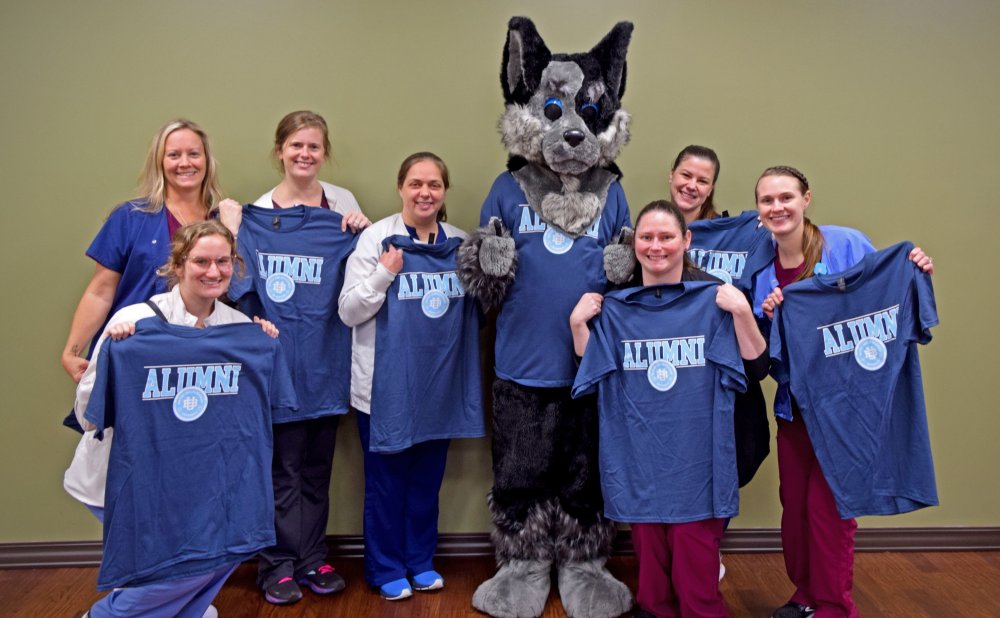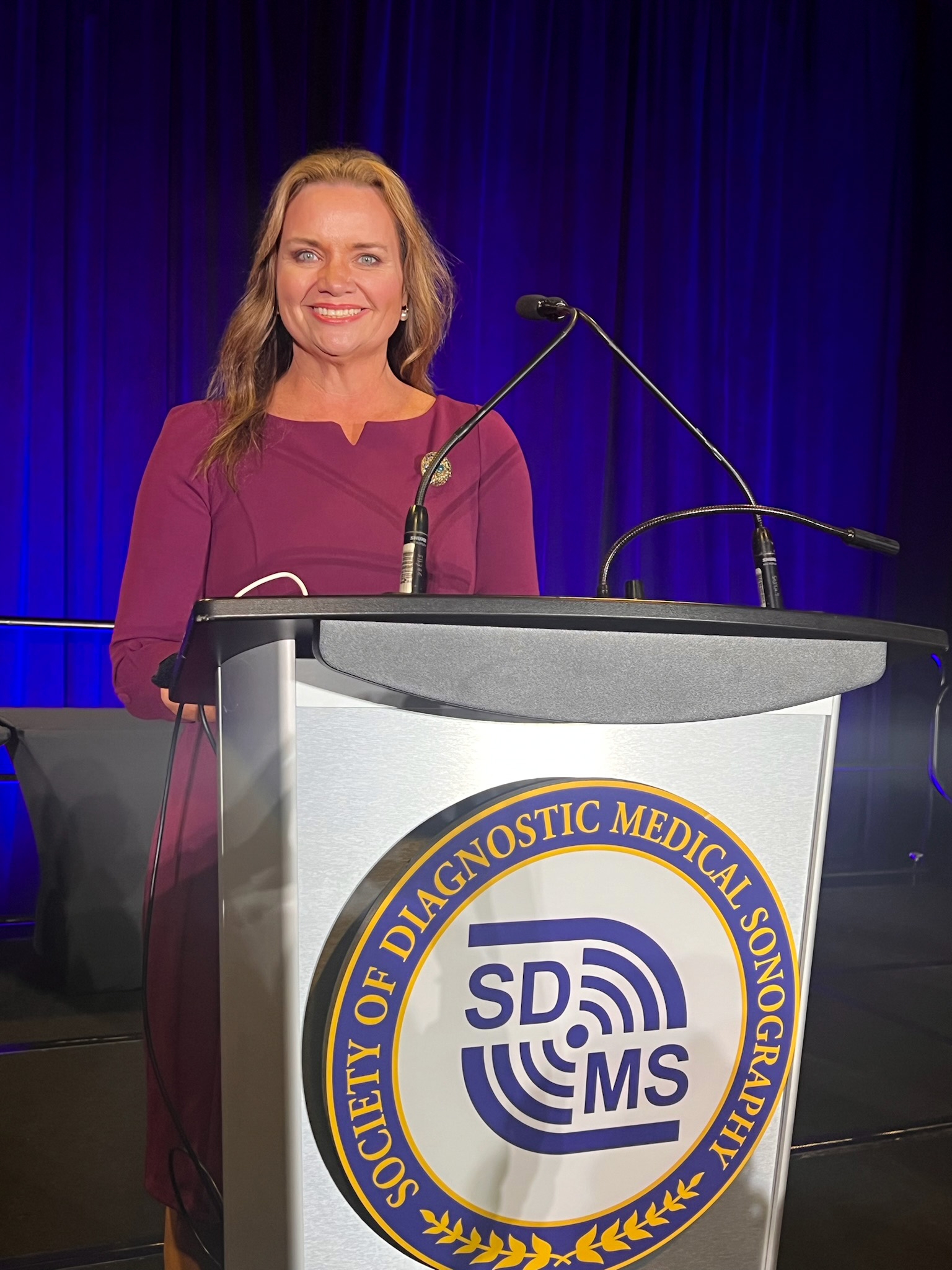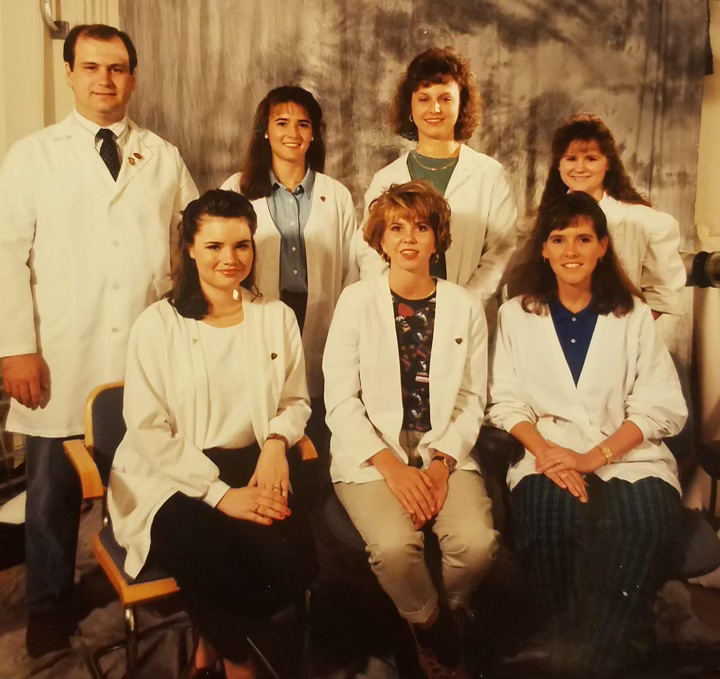Celebrating Medical Ultrasound Awareness Month: Alumni Spotlight

In honor of Medical Ultrasound Awareness Month, we’re shining a spotlight on two alumni from BHSU who have made an impact in sonography. Mitzi Roberts, a graduate of both the Diagnostic Medical Sonography (c/o 1994) and Radiologic Technology (c/o 1993) certificate programs, now serves as the Director of Planning and Institutional Effectiveness and an adjunct faculty member for the College of Osteopathic Medicine. Joining her is April Smith, a 2017 DMS graduate and Head Ultrasound Technologist at Baptist Memphis Hospital.
Through their stories, we explore the power of hands-on training, patient care, and lifelong learning in sonography, offering inspiration and advice for current students and recent graduates alike.
______________________________________________________________________________________
Mitzi Roberts

Q1: Can you share a memorable experience from your time at BHSU that stands out?
Roberts: There were so many great memories. Those that stand out the most were memories made when working with the radiologist at Baptist and other physicians across Memphis. Dr. James Machin and Dr. Erroll Lewis were always so helpful and challenged me to provide the best images for my patients. Dr. Machin continues to this day to serve as the Medical Director for the sonography program. We had the privilege to participate in high-risk obstetrics during our clinical rotations. Dr. Norman Meyer played a role influencing my career in maternal fetal medicine through the compassion he showed for his patients, his expertise in the field and desire to teach. I had the honor of attending a special recognition in his honor for this over 40 year of providing medical care in August of this year.

Q2: Which aspects of your training at BHSU have been most valuable in your day-to-day work as a sonographer?
Roberts: The most valuable aspect was the time spent in the clinical environment. The time spent in the actual clinical areas learning from the other sonographers, patients and physicians was extremely rewarding.
Q3: What advice would you offer to current students in the diagnostic medical sonography program?
Roberts: The advice I offer is to learn for understanding. It is critical for sonographers to understand how the slightest movement of their hand impacts patient outcomes. The knowledge they are gaining in the program is not something that is learned for a moment. The knowledge learned is used throughout their career to provide quality patient care. The ability to connect patient concerns, patient information, sonographic findings and present those findings is challenging yet rewarding. Sonography is an amazing career field and learning never stops.
Q4: What career tips would you give to recent graduates entering the sonography field?
Roberts: I would encourage new graduates to work in a hospital facility to gain experience, join a professional organization to volunteer and keep updated on the profession, advocate for themselves related to workload, musculoskeletal injury, and support of professional development, and most importantly listen to their patients. The patient's story is unique, and they are depending on the sonographer to help them through their health issue. It is not about how fast an exam can be performed; rather, it is about putting the patient first and providing quality patient care.
April Smith

Q1: Can you share a memorable experience from your time at BHSU that stands out?
Smith: I remember being at BHSU, and it had snowed enough that all classes and clinic had been cancelled. A bunch of us from the dorms ventured outside and ended up having a huge snowball fight in the parking lot. It was hilarious and the best study break!

Q2: Which aspects of your training at BHSU have been most valuable in your day-to-day work as a sonographer?
Smith: One of the most valuable things I learned from BHSU is that teamwork is vital. Yes, sonography is very dependent on the individual person's knowledge, but in a field that is always advancing, it is nice to be able to brainstorm with coworkers or other areas of radiology. BHSU introduced the collaboration on ideas and reminded me that I am one piece of a large puzzle. Patient experiences are better when everyone is communicating and working together.
Q3: What advice would you offer to current students in the diagnostic medical sonography program?
Smith: Some advice I would give is to always treat your patients as if they are family. This will keep you wanting to always go the extra step for your patient and make sure you’ve done everything you could have for them.
Q4: What career tips would you give to recent graduates entering the sonography field?
Smith: A career tip is to always push yourself to keep learning the field. There will always be something new with technology or something you’ve never seen before. Don’t be defeated by it. Run towards the opportunity and ask questions if you have to. Constructive criticism should always be welcome. Also, remember to stand your ground. It’s easy to feel defeated or question yourself, but remember your training and know that you can do this.





